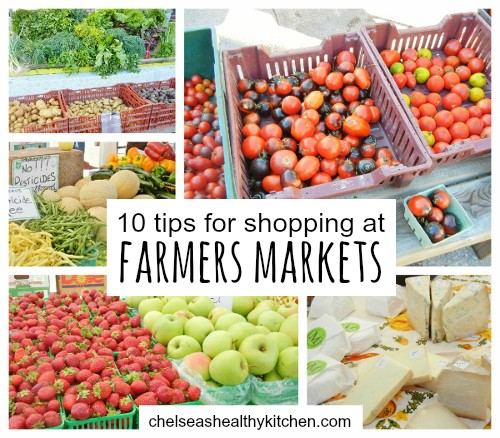How to Make Money at the Farmers Market
Post on: 6 Июнь, 2015 No Comment

Published on April 3rd, 2012
This is a guest post from Lee Doppelt and originally appeared on The Dollar Stretcher .
You enjoy sauntering around your community’s farmers market each Saturday morning. Besides purchasing fresh produce, baked goods, and homemade crafts for gifts, you feel good about supporting local growers and producers. Additionally, it’s fun to meet friends at the market.
The wood carving that you do is a fun hobby and friends have raved about your finished projects. They’ve encouraged you to create more and sell them. Perhaps having a booth at the farmers market would be worth trying .
Know what you’re getting into before you become a vendor at the farmers market. There are many things to consider.
Selling at the farmers market can be a big commitment. You want to be sure it’s right for you. Start by talking with some vendors at your market, particularly people you know personally, and ask specific questions. One vendor who built a specially designed motorized trailer for his booth, to sell healthy made-to-order sandwiches, didn’t realize he’d need to be awake by 3 a.m. each Saturday morning to be ready when the market opens. After a year, he’s closing shop. Interested in buying his vehicle for $75,000?
Peruse the website of your farmers market and read the vendor requirements. Many markets require that your goods be grown or produced in your state. You’ll need to decide exactly what you’ll sell, such as fruits or vegetables, baked goods (breads, muffins, cookies, or pies), arts, crafts (scented candles, chainsaw carvings, and jewelry), or body care items (lotions). Some markets require your commitment for the entire selling season; in many areas, it’s about six months. Booth rental fees vary but expect to pay an average of $500 per six-month season. Some markets allow you to rent a spot weekly for approximately $20. Booths are about 10-by-10 feet; you can choose your spot on a first-come, first-served basis. If you think you’ll need electricity or water for your booth, you’d better inquire long in advance.
It’s a business
Treat your farmers market booth as a business because it is a business .
You’ll want to start small and grow, selling more varied items as you tweak your business. Before the season begins, you must follow your city and state requirements for registering your business. Also, you’ll need to apply for a state resale number and know how to collect and pay sales tax that’s required in your state. Like any proprietor, you must maintain accurate records of income and expenses to be prepared for year-end federal and state income taxes. Proprietors use Schedule C to record farmers market profits. Your expenses will include weekly or annual booth rental fee.
You’ll need to be certain you’re insured properly. For example, if someone gets cut from jewelry that you sold to them, you want to be covered.
You also want to be set up for customers to use debit and credit cards if your farmers market permits that. Each customer credit card purchase will cost you, the vendor, approximately 3%, so price your goods accordingly.
Setup and transportation issues
If you’ll be selling baked goods, many municipalities require that they be prepared in a commercial kitchen; some vendors rent a church kitchen for this purpose. Additionally, you’ll want to invest in a sturdy table that will survive when crowds hover over your goods, eager to pay you. Many vendors also buy a tent, about 10-by-10 feet, the size of many farmers market booths; a tent is good protection for you against sun and heat and helps define your area. Depending on what you’re selling, you may need a commercial scale for weighing produce and also bags and labels for packaging. If you’ll be giving out free samples — a great way to entice potential customers — be sure to have appropriate containers, as well as a nearby trash bin.
Be sure your family car or van is large enough to transport your table, tent, and goods for sale.

Be prepared
Prepare well each season and each week to maximize sales and minimize stress.
If you’ll be selling non-perishable items, such as crafts, use the months when there’s no farmers market to increase your inventory so that you’ll have enough to sell to make it financially viable to be in the market. Also, you’ll probably need help each week at the market, so hire someone, such as a family member or a teen, in advance. Be sure to package and price everything and make signs. Your prices need to be competitive with vendors selling similar items.
On the morning of each market, arrive promptly, open on time, and dress appropriately. Remember a hat, sunscreen, sanitation gloves if you’ll be handling food, an apron, cash for change, and markers and labels if you’ve forgotten to price some goods.
Selling your goods can be a great way to make some extra income. You may want to start by sharing a booth a few times with an established vendor to see if you enjoy it. Next time you visit your farmers market, imagine yourself there as a proprietor instead of a customer and consider whether selling at the farmers market may be something you’d enjoy.
Lee is a regular contributor to The Dollar Stretcher. a site dedicated to helping you live betterfor less. You can follow The Dollar Stretcher on Twitter or Facebook .
Related articles:
GRS is committed to helping our readers save and achieve their financial goals. Savings interest rates may be low, but that is all the more reason to shop for the best rate. Find the highest savings interest rates and CD rates from Synchrony Bank. Ally Bank. GE Capital Bank. and more.














